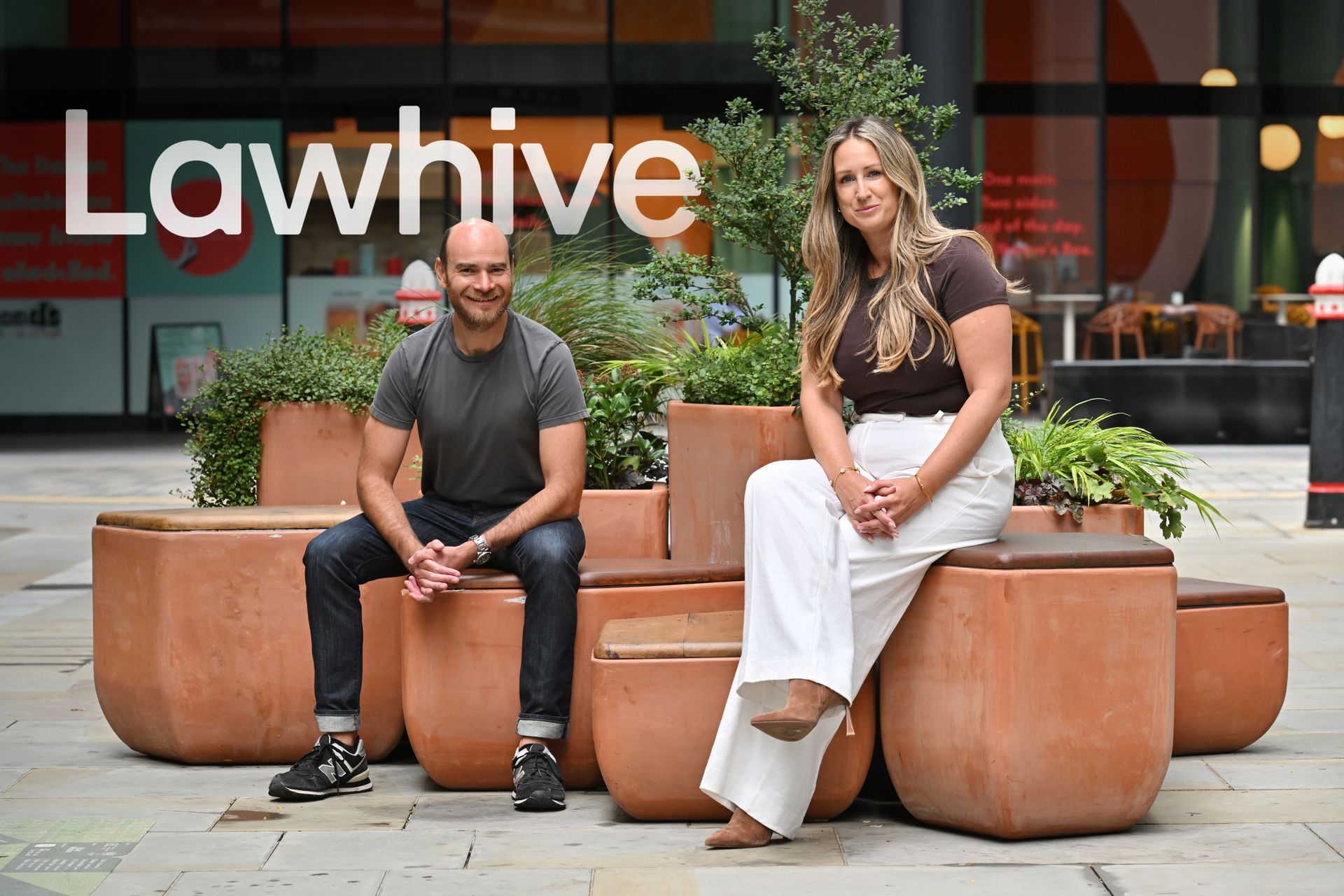Schools out for the summer....
a.cousineau • March 26, 2020
SCHOOL CLOSURES – WHAT DOES IT MEAN FOR MY BUSINESS?
On 18 March 2020 the Government confirmed that from the end of the day on Friday 20 March all schools would close until further notice.
Advice was also given for nurseries and pre-schools to close in line with school closures. This decision took effect for all children apart from children of ‘key workers’ i.e. those individuals working in health care, food delivery, some production sites etc.
WHAT DOES THIS MEAN FOR MY BUSINESS?
Unless your business provides essential services your employees with children will no longer have fixed childcare arrangements in place. This means that there are likely to be disruptions to your business by way of your employees being absent from work.
WHAT DOES THE LAW SAY?
In the absence of updated guidance from the government we are left to apply the laws that we have in place. Presently if parent’s or carers experience childcare emergencies, they are entitled to take a reasonable amount of unpaid leave. The purpose of this leave is so that the parent or carer can make alternative arrangements for their children.
The difference in terms of the current situation, is that there will be very few options available to parents – particularly given that the government have expressly set out that grandparents (who usually fall within the vulnerable group) must not look after their grandchildren.
Arguably the reason for school closures is to isolate children from one another and from gathering in large groups. Therefore, any alternative arrangements will need to be bespoke and are, like toilet paper, going to be in low supply.
It would be welcomed for the government to provide an updated indication of what should be considered ‘reasonable’ in these circumstances. It seems likely that the definition of what is reasonable will need to be stretched and employers need to be prepared to be flexible.
At present any leave taken to look after family and dependents is usually unpaid leave – although some employers may offer enhanced terms, which will need to be considered on a case by case basis.
WHAT CAN I DO?
The best things that an employer can do are 1) prepare to be flexible where possible, and 2) keep lines of communication open with employees.
If employees are able to work from home and can do so effectively whilst caring for their children, then this may be a workable solution. If the children are quite young or need a lot of care then perhaps the employee’s working hours can be shortened and shifted around to accommodate this, for example once the children are in bed.
As always, it will be important to keep in contact with your employees and make sure they understand your expectations and business requirements
WHAT ABOUT PAY?
At present, time taken off to support family and dependents is unpaid, unless as an employer you have enhanced contractual terms.
If an employee is at home caring for children but is able to work and you agree to them working, you would need to pay them in the usual way or in line with any agreement made between you i.e. if caring for children will only allow part-time work, then you could agree that the employee is paid part time hours.
As an alternative, you can seek to agree that an employee take paid holiday instead of time off for family and dependents.
Remember, if you have an employee who is at home caring for children but they become sick or need to self-isolate, they will be entitled to statutory sick pay (or company sick pay if you have enhanced terms) and new rules mean that statutory sick pay will start from day one of either isolation of sickness.
If you have any questions on the impact of COVID-19 on your business or any other employment related questions, then please feel free to contact me and I will be happy to help you.
Contact Us
News & Insights

What a night! We’re over the moon to share that we’ve brought home two incredible awards from this year’s National Landlord Investment Show (NLIS) Awards , held at the De Vere Grand Connaught Rooms in London. Woodstock Legal Services was named "Best Landlord Legal Services Provider" for the fourth year running, and our very own Anna Hughes, Director and Head of Landlord & Tenant , was crowned " Woman in Property of the Year" . Both awards mean so much to us. They reflect the hard work, care and dedication that our whole team puts into supporting landlords and property professionals every day. Anna said: "It was such a special evening. To be recognised alongside so many brilliant people in the industry was an honour, and to celebrate our team’s fourth consecutive win made it even more memorable. I’m so proud of what we’ve achieved together." Alongside our leading expertise in landlord and tenant law, Woodstock offers a full service across residential and commercial property, property litigation, dispute resolution, employment law, family law, private client matters, media and technology, and corporate and commercial law. Our consultancy model gives us the opportunity to attract some of the best lawyers in the sector: experienced specialists who work seamlessly with our in-house team. This blend of insight and collaboration allows us to offer clients a well-rounded service, particularly in landlord and tenant matters where our consultants and core team work closely together to deliver clear, practical and jargon-free advice. Carly Jermyn, Managing Director of Woodstock Legal Services, commented: "It was such a proud moment for all of us. Awards like these are the result of genuine teamwork and the relationships we’ve built with our clients over the years. Seeing Anna recognised in this way was the highlight of the evening – she’s an outstanding lawyer and leader, and we’re lucky to have her." We’re so proud of what we’ve achieved – and so grateful to every client and colleague who’s been part of the journey. Here’s to another year of doing what we love and continuing to bring a fresh approach to law.

Having a clear plan to protect your intellectual property (I.P.) is one of the most important steps a new business can take. From your brand name to your website and logo, these assets define your identity and give you a competitive edge. In his latest insight, Media and Technology Law Consultant Solicitor Luke English shares the five most common intellectual property mistakes that start-ups make, and how to avoid them to secure your business’s future. 1. Failing to Think About Intellectual Property from the Start Your intellectual property is at the heart of your business. It’s everything you create that’s unique to you, your company name, logo, website, content, or trademark. Yet many start-ups fail to think about I.P. protection early enough. When you're launching a business, it is easy to focus on short-term goals like getting products to market or building your client base. However, failing to plan your I.P. strategy early on can have serious consequences. Competitors could register similar trademarks, copy your ideas, or even prevent you from using your own brand if they secure protection first. Early registration of trademarks, copyrights, and patents helps safeguard your innovation and ensures that what you’ve built remains yours. It is not just about protection; it’s about adding value to your business and strengthening your brand identity in the long term. 2. Failing to Carry Out Proper I.P. Searches Start-ups often come up with creative, memorable names and logos, but before you invest in design, marketing, and branding, it’s essential to check that your chosen name or concept isn’t already being used. A simple intellectual property clearance search can save you from major legal and financial issues later. Ensure that your company name, website domain, and social media handles are all available and consistent across platforms. This not only prevents disputes but also makes it easier for your customers to find and recognise you online. Failing to carry out these searches could result in a cease and desist letter arriving just as your brand begins to grow. Rebranding can be costly and disruptive, especially in the early stages of your start-up. Investing a little time and legal advice upfront ensures that your name and brand are genuinely yours to use. 3. Inadequate Documentation of I.P. Ownership In the excitement of building a new business, it’s easy to overlook paperwork, but documentation is vital when it comes to proving ownership of your intellectual property. Every idea, design, and creative output your business produces should be documented, dated, and clearly attributed to your company. Always use the copyright symbol (©) where appropriate and make sure that your trademarks are formally registered. This becomes particularly important when you begin licensing or assigning your intellectual property to others. Without proper documentation, it can be difficult to prove ownership or defend your rights if they’re challenged. Clear records also make your business more attractive to investors, who will want reassurance that the I.P. is securely owned and protected. 4. Failing to Secure Ownership of I.P. Created by Others Many start-ups rely on contractors, freelancers, or third-party developers to create important assets such as websites, apps, logos, or content. However, if the ownership of that work isn’t formally transferred to your business, you may not actually own it. Always ensure that your contracts with external providers include clear clauses assigning all I.P. rights to your company. This includes web designers, marketing agencies, and software developers. Without this, you could face licensing fees or even legal disputes later if you try to use, modify, or sell those assets. The same principle applies to employees. Your employment contracts should clearly state that any intellectual property created in the course of their work belongs to the employer. This helps to prevent ownership issues in the future and protects your right to use and develop your own creations. For example, imagine selling your company only to discover you don’t own the rights to your website or domain name, an all-too-common mistake that can seriously affect a business’s valuation. Proper legal contracts prevent this from happening. 5. Failing to Protect What’s Yours Even with ownership secured, your I.P. is vulnerable if it’s not properly protected in practice. Many start-ups make the mistake of discussing inventions, ideas, or branding publicly before securing legal protection. If you pitch your product or discuss your designs without a confidentiality or non-disclosure agreement (NDA) in place, you risk losing the ability to patent or register them later. Patent law requires novelty at the time of filing, meaning that public disclosure could make your invention ineligible for protection. Always document who you meet with, when and where meetings take place, and what information is shared. Having these records, alongside properly drafted NDAs, reduces the risk of leaks, plagiarism, or competitors “copying and pasting” your ideas. Protecting your I.P. isn’t just a legal formality; it’s an important part of safeguarding your innovation and ensuring that your hard work remains your own. How Woodstock Legal Services Can Help Your Start-Up At Woodstock Legal Services, we understand that launching a start-up can be overwhelming, especially when it comes to the legal side of protecting your intellectual property. Our team offers comprehensive, practical support to help you understand these challenges. Luke English , our Media and Technology Law Consultant Solicitor, can advise on contracts with website developers, trademark applications, terms and conditions, and confidentiality agreements: l.english@woodstocklegalservices.co.uk Richard Hiron , our Employment Law Solicitor, can assist with employment and consultant contracts to ensure I.P. created by your team is properly assigned to your company: r.hiron@woodstocklegalservices.co.uk By taking proactive steps now, you can avoid costly disputes later and build a business that’s both legally sound and ready to grow.

Buying or selling a home is one of the biggest financial commitments you’ll ever make, and knowing exactly what costs to expect can make the process far less stressful. In her latest insight, Kerry Parsons , Residential Property Conveyancing Team Lead & Consultant Chartered Legal Executive at Woodstock Legal Services, explains the essentials of Stamp Duty Land Tax (SDLT) in 2025, and what every homeowner, first-time buyer, or investor needs to plan for. What Is Stamp Duty Land Tax (SDLT)? Stamp Duty Land Tax (SDLT) is essentially a property tax applied when you purchase a home in England or Northern Ireland. It’s based on the purchase price of the property, with higher rates applying to more expensive homes. For most buyers in 2025, SDLT starts on properties worth over £125,000. That means if your new home costs more than this threshold, you’ll need to budget for SDLT in addition to your deposit, legal fees, and other moving expenses. If you’re a first-time buyer, the rules are more generous. You currently pay no SDLT up to £300,000 and then pay 5% on anything up to £500,000. It’s worth noting that SDLT doesn’t apply in Scotland or Wales, where separate systems, Land and Buildings Transaction Tax (LBTT) in Scotland and Land Transaction Tax (LTT) in Wales, operate. For buyers in England and Northern Ireland, however, SDLT is unavoidable in most transactions and can have a significant impact on your overall budget. Why SDLT Catches Buyers Out The importance of planning ahead One of the most common mistakes buyers make is treating SDLT as an afterthought. While it might not be the most exciting part of moving house, it can cause real financial headaches if you haven’t factored it into your budget early on. For example: Bu ying a freehold home for £300,000 as a first-time buyer = no SDLT. Buying a £300,000 home, having owned a property before = £5,000 in SDLT. That’s a significant extra cost, and one that can derail your finances if it isn’t planned for. Many buyers budget carefully for deposits and mortgage repayments, but overlook SDLT until late in the process. By then, it can feel like an unexpected bill rather than a cost you’ve prepared for. If you’re unsure, you can use the government’s free SDLT calculator to estimate your liability before making an offer Calculate Stamp Duty Land Tax SDLT and moving chains Another reason SDLT often catches people out is that many moves involve chains. This is selling one property while buying another. If your transaction is dependent on timing, or you’re buying before your sale completes, your SDLT liability could change, especially if you temporarily own two homes. Factoring in this possibility early is key to avoiding unnecessary stress later. Higher Rates for Additional Properties If you’re buying an additional property, such as a buy-to-let, a second home, or if you’re keeping your old property while purchasing a new one, you’ll usually have to pay 5% on top of SDLT rates if buying a new residential property means you’ll own more than one. This catches many people out. Even if you’re only keeping your old home for a short time, you’ll typically need to pay the surcharge upfront and then apply for a refund later, provided you sell within the current three-year window. For example, a property worth £350,000 would typically attract SDLT of about £7,500. But if it’s an additional residential property, the higher‐rate surcharge raises that to around £25,000, which is a major increase. T hat’s why getting professional advice early in the process is so valuable. Can You Claim SDLT Relief or Exemptions? There are limited situations where SDLT reliefs or exemptions may apply. For example: Transfers between spouses or civil partners Purchases involving multiple dwellings Certain mixed-use properties or shared ownership arrangements For most straightforward home purchases, however, SDLT will apply in some form. If you think your circumstances may qualify for relief, it’s always best to seek advice from a specialist tax adviser alongside your conveyancer. It’s also worth noting that SDLT rules can become complex in cases involving trusts, company purchases, or inheritance. In these situations, specialist legal and tax advice is essential to avoid mistakes or unexpected liabilities. SDLT Changes in the UK – Why You Shouldn’t Assume If it feels like Stamp Duty Land Tax is always in the headlines, that’s because it is. Successive governments frequently tweak SDLT rules and thresholds, sometimes permanently and sometimes temporarily. For example, during the pandemic, a stamp duty holiday provided buyers with short-term relief, only for thresholds to revert afterwards. More recently, SDLT has been a topic of political debate, with calls for reform from different parties. This is why it’s essential not to rely on what a friend or colleague paid in the past. The SDLT rules in 2025 may look very different to those in 2020 or even 2023. Always check the current SDLT rules with your conveyancer or a trusted tax adviser before making any financial commitments. My Conveyancing Advice – Plan Ahead and Budget Early From my experience as a conveyancer, the best advice I can give is to treat Stamp Duty Land Tax as a central part of your property budget from the very beginning. Knowing what you’ll owe early gives you room to plan your mortgage realistically and helps you avoid any last-minute surprises. It also ensures you don’t overstretch your finances when you should be enjoying the excitement of your move. It’s also important to remember that your conveyancer submits the SDLT return on your behalf, but it remains your personal tax return. The calculation could be incorrect if you don’t provide full and accurate information about your circumstances. Always be upfront with your conveyancer or tax adviser to ensure everything is properly declared. Another tip is to keep an eye on government announcements. Even small changes in thresholds or exemptions can make a significant difference to your liability. By staying informed and speaking with your conveyancer early, you’ll have a clear picture of what to expect. Final Thoughts on Stamp Duty Land Tax in 2025 Angela Rayner’s recent comments may have reignited the debate on SDLT, but the basics remain unchanged: SDLT applies to most property purchases in England and Northern Ireland Rules vary for first-time buyers, movers, and second-home purchases Planning ahead is critical to a smooth and stress-free move At Woodstock Legal Services, we don’t provide tax advice, but we do ensure our clients are fully informed throughout the conveyancing process, including SDLT obligations, and can signpost you to a tax specialist if you need additional guidance.

The Woodstock vision was to create a law firm that felt different, one where lawyers had true freedom and flexibility within a community of grade A lawyers and the best operational and regulatory support on offer - all while ensuring our clients remain our constant focus. Since 2014, Woodstock has grown into a community of more than 60 lawyers, built on the principle that legal practice can be both professional and personal. We set out to create a place where lawyers have the freedom to shape fulfilling careers, and where clients benefit from clear, expert advice delivered with genuine care. That vision remains at the heart of everything we do. By joining the Lawhive Group, we are strengthening this vision - combining the trusted relationships and values that define Woodstock, with innovative tools that ease the pressures of legal work. This means our lawyers can dedicate more time to what matters most: guiding and supporting our clients. As our founder, Carly Jermyn , explains: “I’ve always believed a different kind of legal culture was possible, and with Woodstock, we’ve proven it. We’ve created a place where lawyers are supported to grow their careers in a way that fits their lives and works for their clients. This partnership is about scaling that vision with the right kind of technology - AI that enhances our skills and values. What makes it unique is that our lawyers will have the opportunity to shape the tools they use every day.” We recognise that the use of AI in legal practice raises important questions, and that’s why this step is being taken in a carefully controlled and fully compliant way - with SRA approval, and while ensuring confidentiality and compliance remain at the centre of our work at all times. At the heart of Lawhive’s technology are AI colleagues capable of working alongside and supporting human lawyers. Lawrence, Lawhive's first AI colleague is a proprietary AI legal assistant. Lawrence drafts documents, completes case research, and handles routine case management with minimal input - scoring 81% on the rigorous Solicitors Qualifying Exam (SQE), far above the 55% pass threshold. The goal is not to replace lawyers, but to augment their work, reducing repetitive tasks and legal admin. "We're demonstrating that technology can support and enhance the best aspects of legal practice while creating communities where lawyers shape how that technology evolves," said Pierre Proner, CEO and co-founder of Lawhive. "We believe that Lawhive’s vertically integrated model of a regulated law firm and tech platform for lawyers to work alongside AI colleagues, creates better outcomes for everyone." For our clients, your experience with Woodstock does not change. You will continue to work with the same lawyers you know and trust, supported by the same ethos that has shaped our firm from the beginning. What evolves is the scope of what we can achieve, as we combine human expertise with pioneering technology to deliver legal services fit for the future. We are proud of what we have built, and confident in the path ahead. Read the full announcement on Sky News here.







